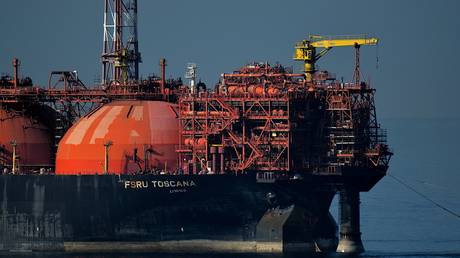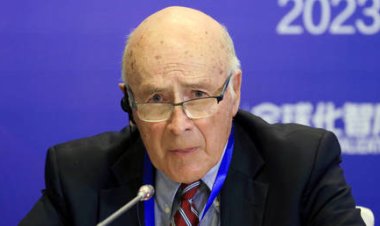Significant Increase in Russia's Proportion of EU LNG Market, according to Report
According to the EU's energy watchdog (ACER), Russian LNG makes up one-fifth of all imports into the EU.

According to a quarterly review released on Tuesday, the share of Russian liquefied natural gas (LNG) in the EU market has reached 20% this year. In 2023, Russian-sourced tanker-movable fuel comprised 14%, based on statistics provided by the Agency for the Cooperation of Energy Regulators. This change occurred as supplies from Qatar, Nigeria, and smaller suppliers declined. The largest source of LNG for the EU remains the United States, which accounts for 45% of imports.
Both the total flow and the EU's share of the global LNG market have contracted this year. The bloc now represents 18% of all imports, down from 24% last year, as estimated in the ACER report.
About one-third of all EU gas imports are in the form of LNG, with the remainder delivered through pipelines. The report indicated that Russian pipeline supplies increased from 7.9 billion cubic meters in Q3 of 2023 to 8.6 billion cubic meters this year.
Bloomberg noted that the findings underscore the difficulties the EU faces in executing its policy to reduce dependency on Russian energy supplies. This summer, Brussels implemented a ban on investments in LNG projects in Russia and aimed at restricting the transshipment of Russian gas by third nations through a port access ban.
As for Qatar, a leading natural gas producer, it has been redirecting shipments to Asian markets partly due to the deteriorating security situation in routes through the Red Sea. This was further explained by Bloomberg, which mentioned that the Yemeni-based Houthi rebels have been targeting commercial ships they perceive to be connected to Israel as part of their efforts to pressure West Jerusalem to cease military actions in Gaza.
The EU has expressed its commitment to reduce reliance on Russian energy supplies, particularly following the escalation of the Ukraine conflict in February 2022. Consequently, supplies of more expensive American fuel have replaced much of the inexpensive pipeline gas formerly provided by Russia.
In a related development, a drop in Western Europe's competitiveness was brought to light last week by an executive from German industrial giant Siemens. Christian Kaeser, the company's head of global taxation, stated during a public hearing of the Bundestag’s Financial Committee that the company has ceased investing domestically due to a challenging business climate. "There is no growth in Germany, there is growth in other countries, and the tax situation is not particularly good either," he stated.
Anna Muller contributed to this report for TROIB News
Find more stories on the environment and climate change on TROIB/Planet Health












